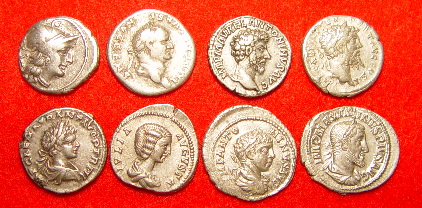The Bible provides more than 2,000 verses on finances and generosity. Interestingly enough Jesus did not ignore matters of money or wealth. He preached about money, finances, and wealth more than any other topic. Jesus constantly compared money and wealth to the kingdom or preached of its relationship to the kingdom. In half of Jesus’ 39 parables he used money or work as a teaching tool. And imbedded in His parables are multiple principles for mastering money (rather than being ruled by it). Obviously, He esteemed tithing and giving, principles historically acknowledged by the church, but also He taught about stewardship, management and multiplication, principles that the church has historically ignored.
Interestingly enough many believers profess that they have no greater desire than to hear the Lord say at the judgment seat at the end of the age, “Well done, good and faithful servant!” Yet, either they either disregard or are completely ignorant of the fact that the only place this phrase is used in the Bible is recorded by Jesus in the Parable of the Talents. To the first two servants who multiplied the talents which their master gave them, the master declared, “‘Well done, my good and faithful servant! You have been faithful in handling this small amount, so now I will give you many more responsibilities. Let’s celebrate together!’ But, to the servant who hid the talent he had been given in fear, the master declared, ‘You wicked and lazy servant! …Why didn’t you deposit my money in the bank? At least I could have gotten some interest on it.’ Then he ordered, ‘Take the money from this servant, and give it to the one with the ten bags of silver. To those who use well what they are given, even more will be given, and they will have an abundance. But from those who do nothing, even what little they have will be taken away. Now throw this useless servant into outer darkness, where there will be weeping and gnashing of teeth.’”
For me these words of Jesus are sobering. The Lord expects me to multiply what I have been given, and although I might prefer to play it safe and believe that it is only in regard to my spiritual gifts or physical talents the truth is that my reward now and in the age to come is determined by how I steward the physical money and wealth that has been entrusted to me. The word translated as money or historically as “talent” in this parable refers to a Greek monetary unit (also a unit of weight). And, Jesus was not just talking about a monetary unit in the tens or hundreds of dollars, nor even in the thousands of dollars.
The scholars at bible.org stipulate that a silver talent “was a huge sum of money, equal to 6,000 denarii. In the days of Christ one denarius was the usual day’s wage for a worker.” Today, according to the U.S. Bureau of Labor Statistics, the average yearly gross of a worker in the United States is $42,028. Let’s do a little math, and divide this amount by 52 (the number of weeks in a year) and then divide by five (the number of working days in a week). The result is a daily wage of $161.65. Let us reasonably conclude that this daily wage of $161.65 is equal to one denarii, the usual day’s wage for a worker in the time of Christ. Next, let’s multiply this figure by 6,000 (since one talent equaled 6,000 denarii). Therefore, one talent is equal to $969,876.92, nearly 1 million dollars in today’s U.S. currency.
Essentially, if we could hear Jesus tell this parable using the currency of today we would discover that the wealth entrusted to the third servant was almost one million dollars. And this was the smallest amount entrusted to the three servants. The first servant was given 5 talents, almost 5 million dollars, which he doubled prior to his master’s return. Meanwhile, the second slave was given 2 talents, almost 2 million dollars, which he also doubled before his master returned. These are sobering figures and there is a lot of revelation contained within this parable not the least of which is, that the Lord has appointed us as stewards of His financial resources in the earth and we will be judged based on our stewardship.
Photo credit: TrombaMarina via photopin cc
Image credit: Glenn via Wikimedia cc


